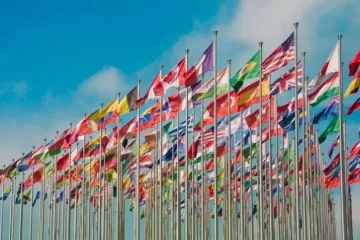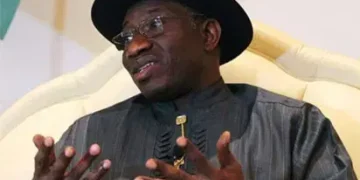African Nations Unite to Form Strategic Minerals Coalition — Challenging U.S. and Chinese Dominance

By Dr. Michael Omoruyi | iNewsAfrica
In a move that could redefine the global energy landscape, the African Union (AU) has announced plans to form a coalition aimed at controlling the continent’s vast reserves of strategic minerals. The alliance seeks to position Africa as a decisive player in the clean energy revolution—challenging decades of U.S. and Chinese dominance over critical resources.
A Bold Step Toward Resource Sovereignty
From cobalt in the Democratic Republic of Congo to lithium in Zimbabwe and rare earth elements in Tanzania, Africa holds some of the world’s richest deposits of minerals essential for electric vehicles, renewable energy technologies, and advanced electronics. Until now, these resources have largely been extracted and exported under arrangements that favor foreign powers, leaving African countries with limited value capture.
The new coalition, currently in its formative stages, aims to rewrite that story. By coordinating policies, standardizing regulations, and leveraging collective bargaining power, African leaders intend to ensure that their nations benefit more equitably from the wealth buried beneath their soil.
Taking Aim at Global Powers
For decades, the United States and China have competed fiercely for control of Africa’s mineral supply chains. China, through its Belt and Road Initiative and aggressive mining investments, has established dominance in processing and refining. The U.S., meanwhile, has sought to secure strategic partnerships to diversify supply chains away from Beijing’s grip.
Africa’s move to unite threatens to disrupt this balance. Analysts say it signals a new era in which the continent is no longer a passive supplier but an active power broker in the global clean energy economy.
Economic and Political Implications
The implications are far-reaching. If successful, the coalition could:
-
Increase Africa’s share of revenue from global mineral markets.
-
Attract investment in local refining, processing, and technology industries.
-
Strengthen intra-African trade under the African Continental Free Trade Area (AfCFTA).
-
Reduce dependency on external actors and elevate Africa’s bargaining power in international negotiations.
However, challenges remain. Fragmented governance, entrenched foreign interests, and infrastructure deficits could hinder the coalition’s ability to act with one voice. Success will depend on unity, transparency, and visionary leadership.
A Game-Changing Moment
As the world transitions toward renewable energy, the stakes have never been higher. Control of minerals like cobalt, lithium, and rare earths will define which nations lead in the 21st-century economy. By joining forces, African countries are not just asserting sovereignty over their resources—they are reshaping the rules of a game long dominated by others.
For Africa, this could be the dawn of a new chapter: from being a supplier of raw materials to a central architect of the global clean energy future.
About the Author
Dr. Michael O. Omoruyi is a technologist, educator, and author of From Grit to Grace. He is the founder of iNewsAfrica, championing African and diaspora voices on technology, culture, and youth empowerment.

Dr. Omoruyi’s memoir launches across Amazon and other bookstores Worldwide October 21, 2025
The Book Trailer
To give you a glimpse of what lies ahead, I invite you to watch the official book trailer.
UNGA-80: Africa Speaks, the World Must Listen
September 26, 2025Africa Finally Has a Voice: Why iNewsAfrica Was Founded
September 24, 2025U.S. Express Support for Nigeria’s Next Generation of Leaders
September 22, 2025
Leave a reply Cancel reply
Popular Categories
- Guinea-Bissau 1
- Thailand 1
- Trade 1
- Myanmar 1
- West Africa 1
- Zimbabwe 1
- Colombia 1
- Mauritania 1
- Brazil 1
- Mozambique 1
- Entertainment 1
- Chad 1
- Finland 1
- Weather 1
- ICJ 1
- ECCAS 1
- Democracy 1
- Celebration 1
- Tunisia 1
- The Hague 1
- UNDP 1
- Book & Arts Spotlight 1
- Defense 1
- Culture 1
- Nepal 1
- Vietnam 1
- Gambia 1
- Israel 1
- Space 1
- Automobile 1
- BRICS 1
- Gabon 1
- Pakistan 1
- Togo 1
- Wildlife 1
- Global Diplomacy 1
- Vatican City 1
- Morocco 1
- Somali 1
- Terrorism 1
- United Nations 1
- senegal 1
- Ivory Coast 1
- Europe 1
- Travel 1
- Science 2
- Economy 2
- Church 2
- Angola 2
- New York City 2
- Algeria 2
- London 2
- Somalia 2
- Rome 2
- World Bank 2
- Caribbean 2
- Zambia 2
- Guinea 2
- Business 2
- Education 2
- Middle East 2
- Cameroon 2
- Energy 2
- Benin Republic 2
- Sierra Leone 2
- Ukraine 2
- Haiti 2
- Ukraine 2
- Music 3
- India 3
- Crime 3
- Transportation 3
- Uganda 3
- Ethiopia 3
- Rwanda 3
- South Sudan 3
- Russia 3
- Congo 3
- France 3
- Tanzania 3
- Aviation 3
- Namibia 3
- Lesotho 3
- Health 4
- Liberia 4
- Libya 5
- ECOWAS 5
- UN 5
- UK 5
- Egypt 5
- Mali 7
- China 7
- Editorial 8
- Niger 8
- Burkina Faso 9
- Sudan 9
- Politics 10
- Tech 12
- Technology and Business 13
- Ghana 13
- World 15
- DR Congo 15
- Sports 17
- Kenya 17
- Opinion 18
- People 21
- South Africa 28
- US 43
- OP-ED 51
- Africa 81
- Nigeria 142

Email: [email protected]









